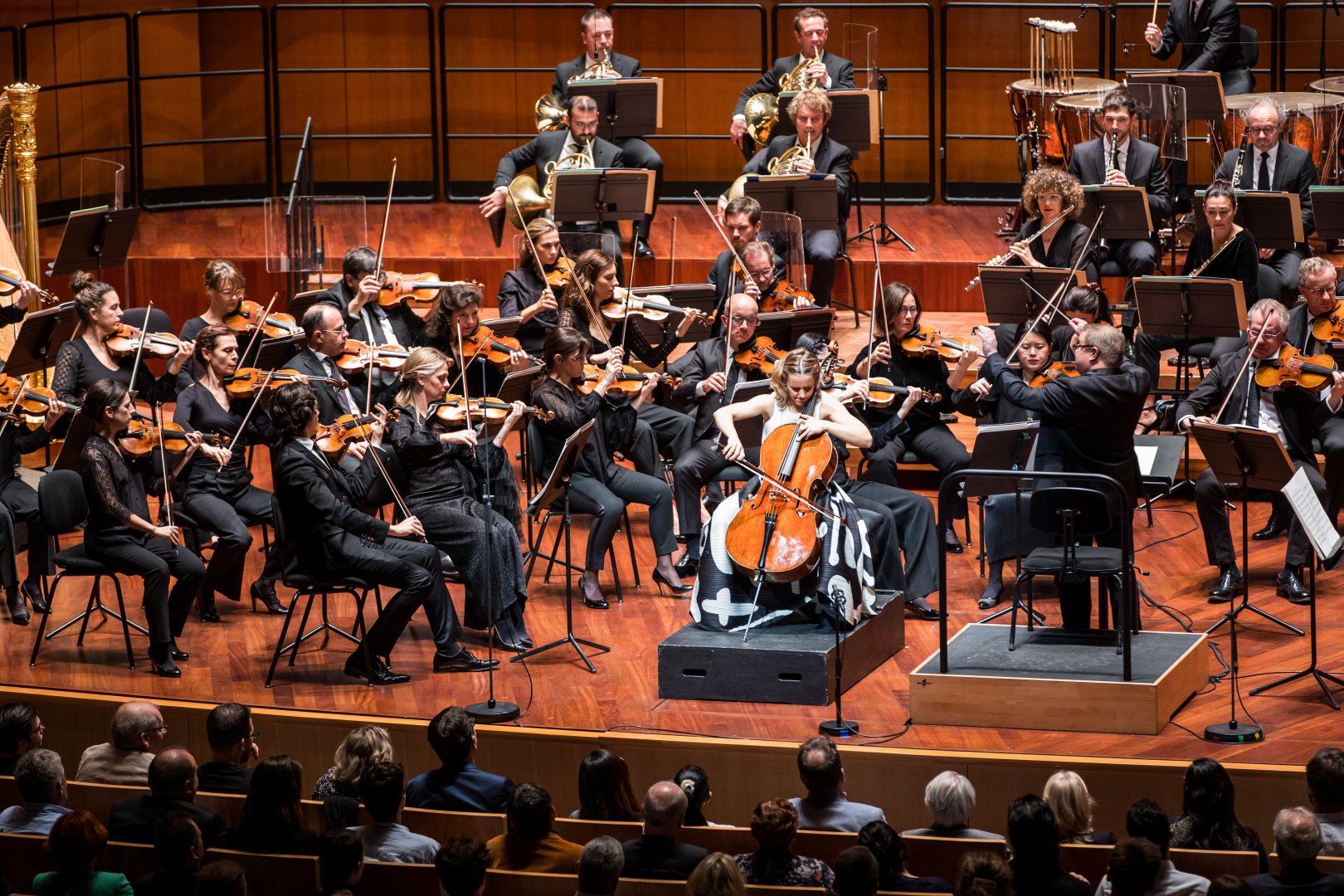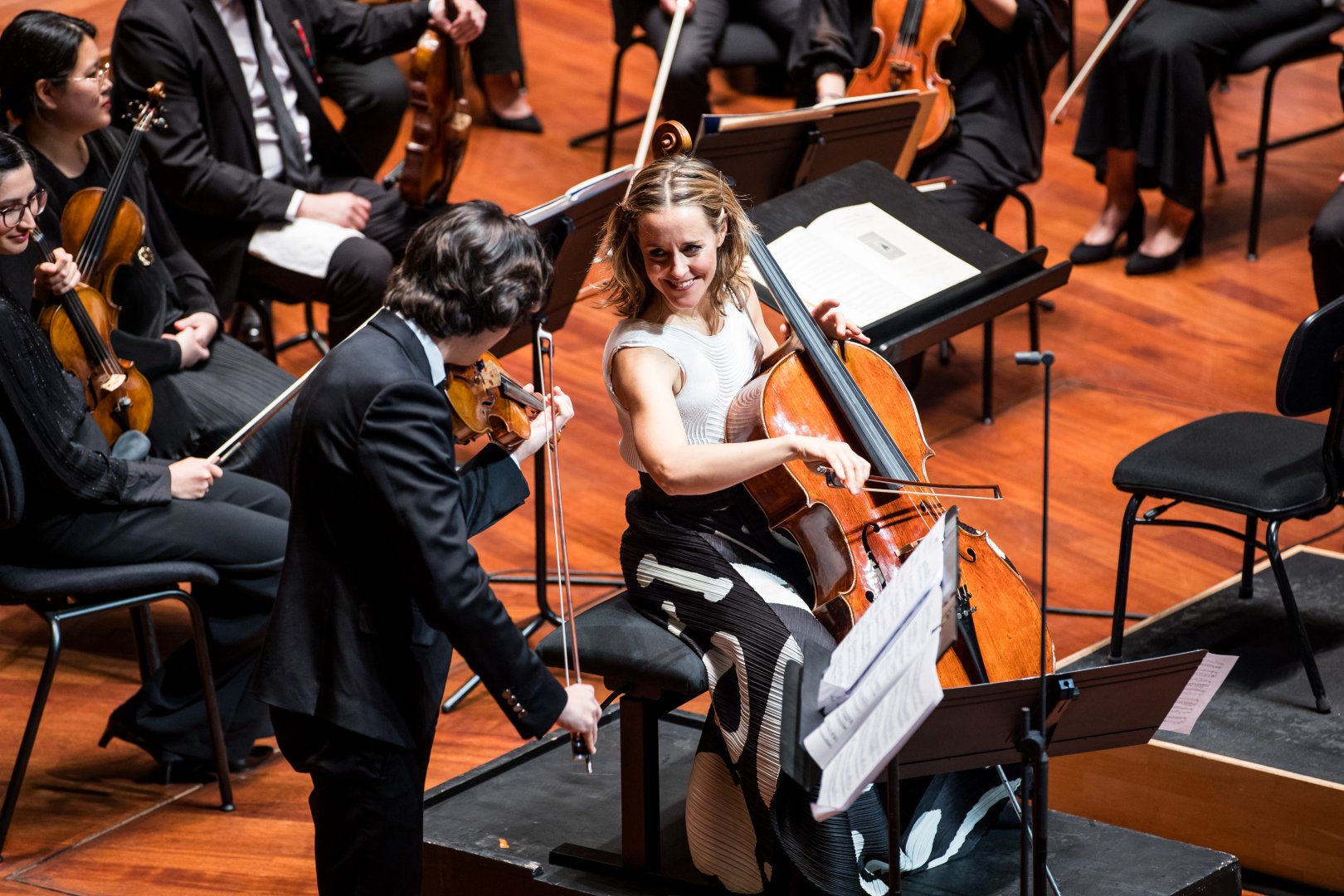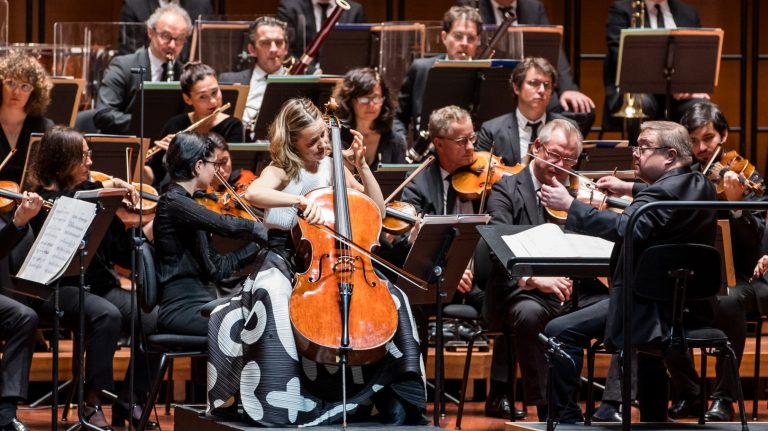In a delightful confluence of irony, Finnish conductor Mikko Franck and the French Radio Philharmonic Orchestra performed César Franck’s D minor symphony, a significant opus that unfortunately doesn’t get enough attention.
In this setting, in Müpa Budapest’s Béla Bartók Concert Hall on October 24th, following Berlioz’s overture to his opera Beatrice and Benedict and Elgar’s Cello Concerto, the famous French/Belgian organist’s symphony glimmered with great gusto under the baton of Maestro Franck.
This magnificent Parisian orchestra and their maestro, who chose to end their 6-city tour in Budapest, gave us a skillfully crafted version of this 1888 score, which in itself is another odd confluence — it’s one that blends in other musical sources that existed at that time. Hints of Wagner’s chromaticism lurk in every corner, creating waves of enharmonic twists and turns.

The influences of Berlioz’ orchestral innovations and Saint-Saëns’ joyful melodic outbursts also join in the elegant French romanticism party. Noticing C. Franck’s consistent weaving of a single melody into a richly splendid fabric in each of the three movements, one could easily imagine how this work might sound on any of the great French cathedral organs, as was this composer’s chief milieu.
Well-known cellist Sol Gabetta lustily launched into Elgar’s only concerto for cello. It’s a staple for cellists, but surrounding it is the lingering legacy of the much-lauded Jacqueline du Pré, whose recording of it apparently set a standard that I think is unfair to cellists everywhere. It’s a challenging piece because of its wandering and repetitive qualities that often don’t fit the melodic and/or phraseological comfort zones. Gabetta’s personality and physical energies, however, make this piece succeed where others fail, in my opinion. It needs the player to imbue the piece with indescribable passion; she embodies that, without forsaking any technical demands.

Gabetta was summoned late in the game to replace Hilary Hahn, who had originally been scheduled to play the Tchaikovsky Violin Concerto, a piece that would have fit more logically within the Franco-Russian compositional time-zone. However, Gabetta had a brilliant idea: to help assist the generation gap, she employed the Parisian orchestra’s concertmaster, Nathan Mierdel, to perform Kodály’s Duo for Violin and Cello as an encore. This was a winning combination, and the audience adored it.
Interestingly, another program is coming up on November 22 at the Liszt Academy, that will feature the Elgar Cello Concerto (with István Várdai) and Franck’s Symphony, performed by the Orchestre Philharmonique Royal de Liège, conducted by Gergely Madaras.











